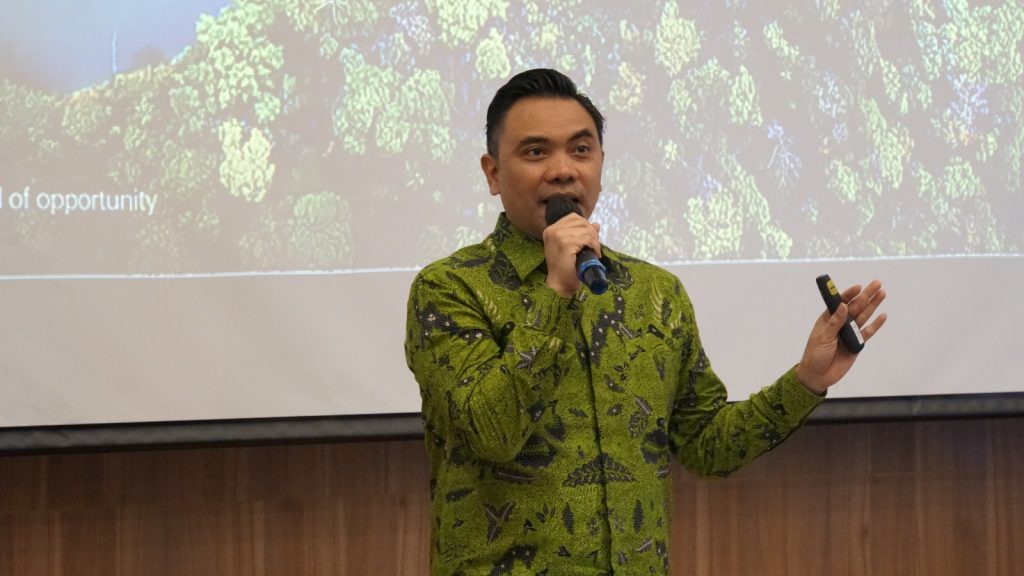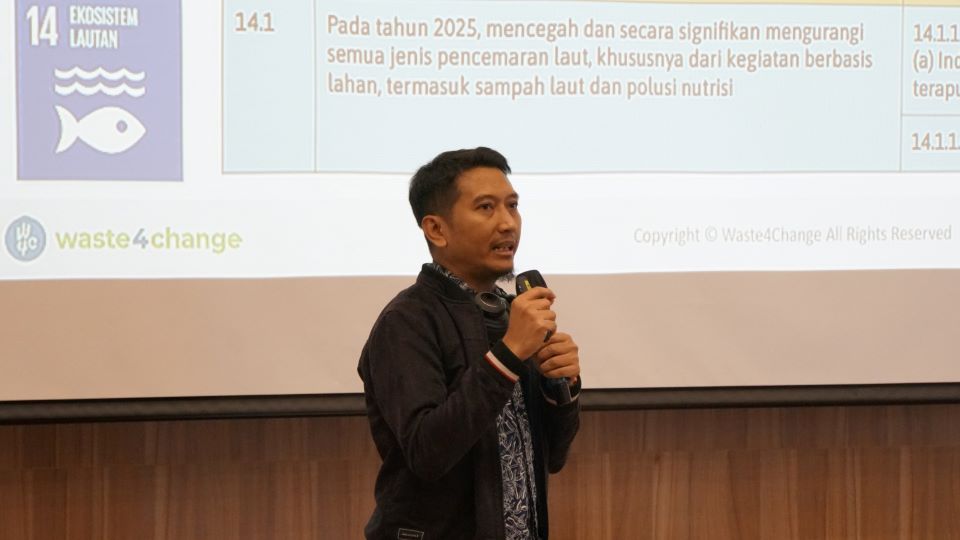Mohamad Bijaksana Junerosano, Founder and CEO of Waste4Change, emphasized that Indonesia’s waste problem is part of a global issue requiring cross-sector cooperation. He noted that the lack of regulation, public waste management awareness, technology integration, and cross-stakeholder coordination are critical to effective waste management solutions.
Sano, as he is known, shared these insights during a guest lecture “Navigating Sustainability: Exploring ESG Principles for Future Leaders” on Tuesday (22/10) at SBM ITB. Since founding Waste4Change in 2014, Sano has focused on providing waste management solutions through four business pillars: consulting services, sustainable waste management, recycling, and engineering and technology development. By 2024, Waste4Change will be managing 10,000 tons of waste annually across five cities in Indonesia.
The guest lecture also featured Riko Tasmaya, Managing Director and Head of Wholesale Banking at PT Bank HSBC Indonesia. Riko explained that HSBC is committed to achieving net-zero emissions by 2050, focusing on three main aspects: supporting the transition through various green products and services, achieving net zero in company operations, and partnering with public and private sectors for systemic change.

As part of its Environmental, Social, and Governance (ESG) efforts, HSBC has launched the Green Financing Framework through the HSBC Green Bond Framework. This initiative supports investors in achieving their sustainable goals and encourages clients to seize opportunities within the fast-growing, low-carbon economy. Additionally, HSBC has assembled a team of business specialists dedicated to identifying low-carbon financing opportunities and supporting clients in sustainable business ventures. This approach aims to accelerate the shift toward a sustainable future with eco-friendly products and services.
Meanwhile, SBM ITB Lecturer Isti Raafaldini stated that SBM ITB has taken concrete steps to support ESG implementation in Indonesia. SBM incorporates the ESG concept into its curriculum and regularly holds seminars and guest lectures with companies successfully integrating ESG principles into their operations.
“Hopefully, SBM students, as future leaders, will recognize the critical role of ESG in ensuring sustainable business practices,” Isti said.
SBM has also defined its societal impact goals, focusing on SDG 8, which promotes economic growth. This commitment is reflected in community service programs, research, and a curriculum contributing to economic development.




